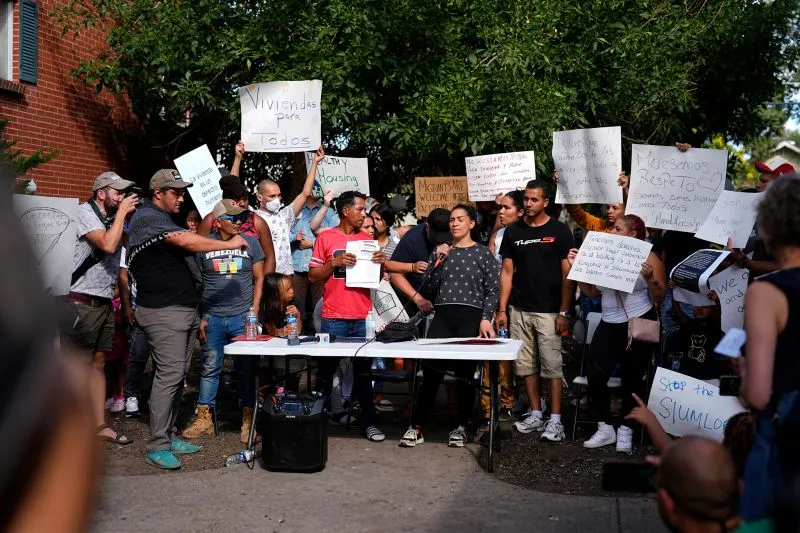Aurora: Spotlight on Immigration Challenges and Housing Violations

Aurora's Housing Crisis and Immigration Debate
Aurora, Colorado, has become a focal point in the national immigration discourse due to significant issues linked to a local apartment complex at 1568 Nome Street. Recently deemed uninhabitable, accusations of gang activity have emerged amid reports of pressing housing violations.
The Situation at 1568 Nome Street
In the contentious political climate leading up to the presidential elections, former President Donald Trump has pointed to Aurora as a case study of the impacts of unregulated migration. Claims about Venezuelan gangs allegedly terrorizing neighborhoods have raised eyebrows. However, tenants assert that the true cause of their plight stems from longstanding issues such as bedbugs, mold, and lack of basic utilities, rather than criminal influence.
The Role of Local Authorities
Local authorities, including Aurora's mayor and police, emphasize that reports of gang activity are exaggerated. Many city officials believe the narratives surrounding gangs detract from the critical issue of poor housing conditions that ultimately led to the apartment's closure.
- Government officials acknowledge minor connections to gang members.
- However, they stress the real problems lie in negligent management.
Impact on Residents
The controversial nature of eviction as a response to perceived crime has left many Venezuelan migrants feeling victimized, both by their living conditions and by societal stigma. As the situation unfolds, Aurora grapples with challenges that highlight broader issues surrounding immigration and housing stability.
This article was prepared using information from open sources in accordance with the principles of Ethical Policy. The editorial team is not responsible for absolute accuracy, as it relies on data from the sources referenced.